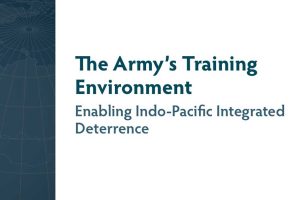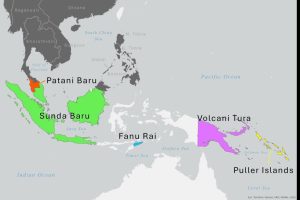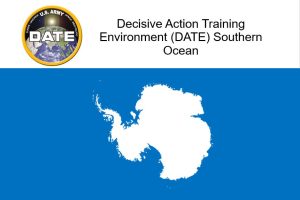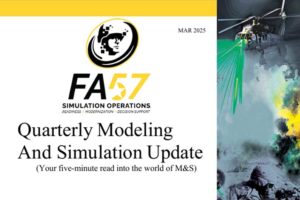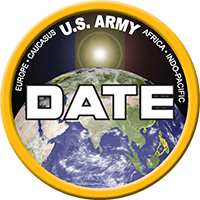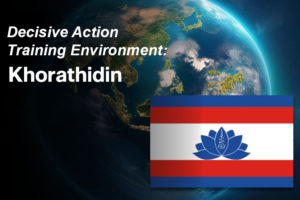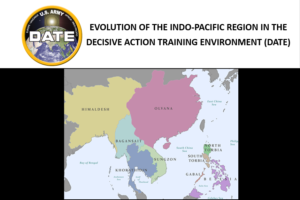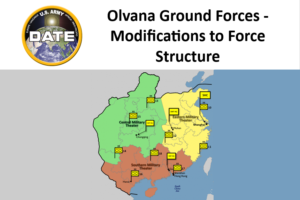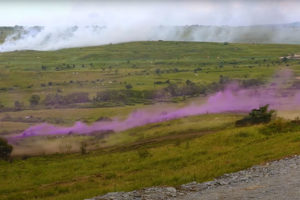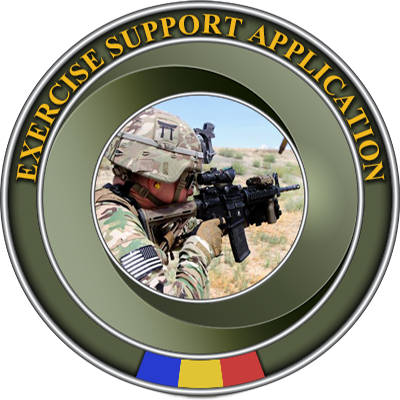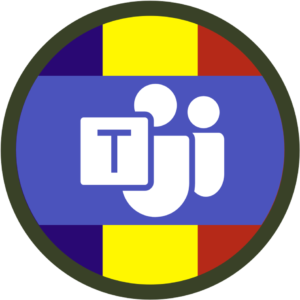WHAT'S NEW
The Army’s Training Environment Enabling Indo-Pacific Integrated Deterrence
Announcing DATE Southern Ocean
Quarterly TRADOC G-2 Modeling and Simulation Newsletter
TRADOC G2 Develops DATE Events List
Decisive Action Training Environment: Khorathidin
EVOLUTION OF THE INDO-PACIFIC REGION IN THE DECISIVE ACTION TRAINING ENVIRONMENT (DATE)
Olvana Ground Forces – Modifications to Force Structure
TRADOC OE Enterprise DATE World Indo-Pacific
Understand DATE
“The Army's training and education proponents will use [DATE] as the foundation to describe the OE conditions.”
GEN Milley (quoted during his tenure as CSA)
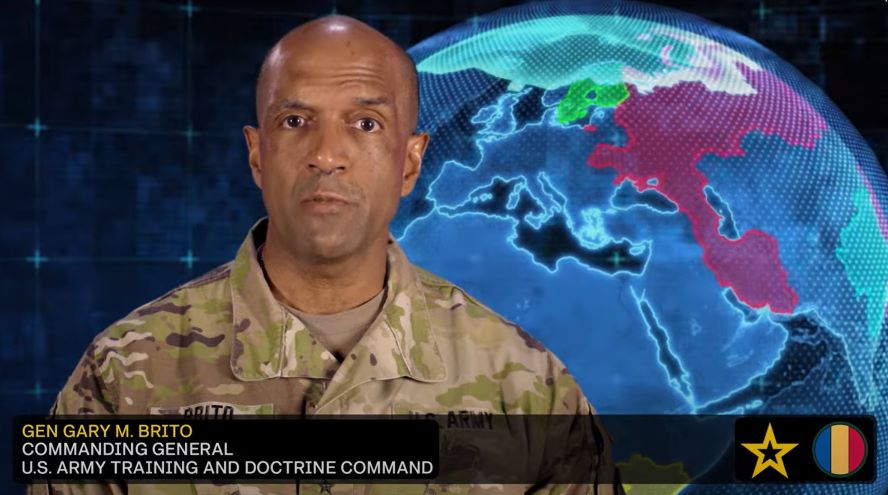
WHAT IS DATE
The Decisive Action Training Environment (DATE) is the U.S. Army’s official tool for scenario development that enables training for all US Army essential tasks through a singular unified scalable training environment. DATE, while intelligence informed, is an unclassified foundation that is institutionalized across professional military education and training. It provides relevant, and realistic conditions and adaptive adversaries for the training community and supports the education continuum from privates to general officers.
DATE SUPPORTS THE OE
The Operational Environment (OE) is a composite of the conditions, circumstances, and influences that shape the employment of capabilities and bear on the decisions of the unit commander.
DATE provides the Army with a training OE in order to support every stage of training and education across a soldier’s career. From initial military training through the most senior education venues, DATE is the foundational environment from which scenarios are generated.
Intelligence Community-validated, realistic and relevant conditions and adversaries for unclassified training.
training at any echelon
(from Team to Corps).
the OE across professional military
education and training.
training for all U.S. Army Essential Tasks in order to fight and win in multi-domain large scale combat operations.
Army, joint, and multinational partners institutional and operational training events.
DATE ENHANCES REALISM
DATE provides the US Army training community with a detailed description of the OE characteristics and conditions found in multiple regions around the globe: Africa, Eurasia, the Indo-Pacific, and the Arctic and Antarctic polar regions. DATE provides trainers and exercise developers with a foundational narrative that can be used as is or adapted to fit the training needs of a specific scenario.
DATE DEVELOPMENT
DATE Regions and Countries are developed as composites based on OE conditions from multiple real-world nations and real-world threat characteristics validated by the Intelligence Community.
Efforts are made to ensure compliance with Army regulation AR 350-2 by avoiding direct reference to specific countries, governmental policies or agendas, military orders of battle, or governmental structures, while maintaining intelligence-informed realism for effective training scenarios.
Operational variables
DATE presents OE conditions using Operational Variables as a framework to represent complex, realistic, and intelligence-informed conditions. Political - Military - Economic - Social - Information - Infrastructure - Physical Environment - Time (PMESII-PT).








DATE REGIONS & COUNTRIEs
DATE Regions are all part of a singular system of systems, interconnected, interacting, and engaged on a global scale. Comprised of 24 Notional Countries, each Region contains national interests that span the globe and cover a diverse set of environments.
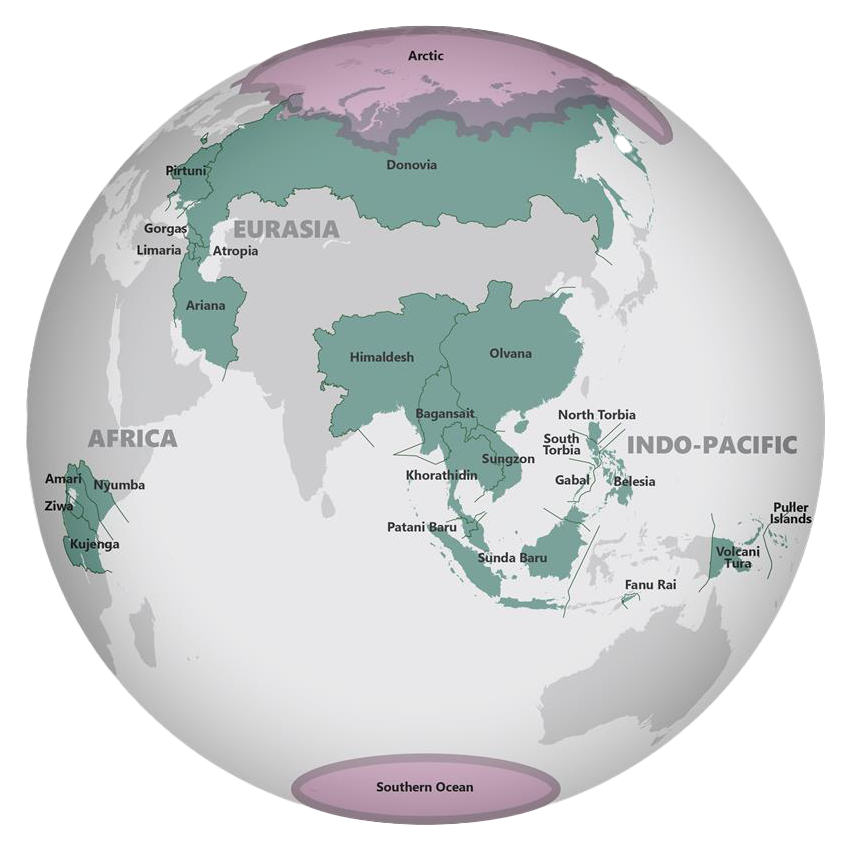
MILITARY FORCE STRUCTURES
Each DATE country has a unique Administrative Force Structure that is organized as an “in garrison” force and is not task organized to conduct operations. Force Structures can be used off the shelf; however, to optimize training objectives, it is recommended that scenario developers specifically task-organize the Order of Battle by considering all relevant factors.
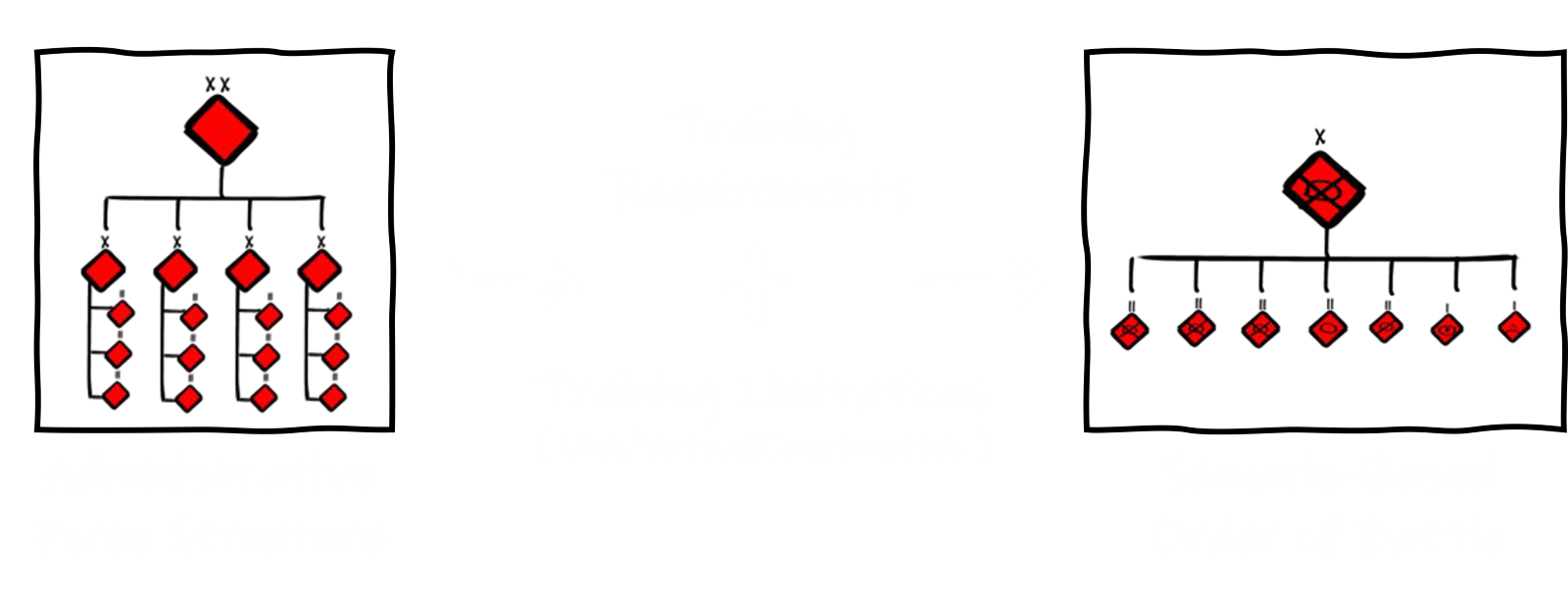
FUNCTIONAL AREAS
The Functional Areas section of DATE aims to provide guidance on incorporating multi-domain elements into training. These elements include Space, Air, Maritime, Cyber, Electronic Warfare (EW), and more. In partnering with subject matter experts we identify key factors to enhance the representation of each area in training, serving as a starting point for those tasked with integrating specific domains into their scenarios.
DATE IS ADAPTABLE
DATE has been designed and built to enable adaptation and customization to meet a wide variety of unclassified scenarios for any set of training requirements. Any country within DATE can portray a partner, neutral, or adversarial actor in a scenario. Real world adversary capabilities and interests can be found throughout DATE and are not limited to just one actor.
OE
CHARACTERISTICS
Customize population size, demographics or economic standing.
Bend borders and boundaries or manipulate infrastructure conditions.
International agreements.
ORGANIZATION &
EQUIPMENT
Update or change equipment and increase or decrease equipment numbers.
Adjust operational readiness and add or remove capabilities.
Add enablers at any echelon.
Choosing
adversaries
Regional threats can be found in each of the DATE World regions.
Pacing threats found in Indo-Pacific countries like Olvana and North Torbia or Eurasian countries like Donovia and Ariana.
The Force Structure and Equipment assigned to each country are baselines heavily influenced by real-world threats, but are not replicas and can be further adapted to meet training requirements.
Tactical
Application
DATE World informs who the notional actors are but not how they will fight.
Resources like the ATP 7-100 Series and TC 7-100 Series are available to inform how actors can operate in tactical setting.
TRADOC G-2’s Virtual OPFOR Academy can teach you how to apply and replicate OPFOR counter-tasks. These tasks presented on VOA are in support of Combined Arms Training Strategy events.
APPLY DATE
Access the library of beneficial products to support your scenario development of DATE. Included in this library are OE narratives, detailed force structures, geospatial content, interactive mapping tools, and more.

AFRICA
DATE Africa contains countries at different stages of development, each seeking economic and security partners from other regions. Competing global interests in the region can quickly turn local conflicts into global affairs.
Narrative
(PDF)
Narrative
(PDF)
Narrative
(PDF)
Narrative
(PDF)

Eurasia
DATE Caucasus occupies territory that is valued by local actors, regional actors, and global actors alike. Tensions within DATE Caucasus often have layers of depth linked to centuries of conflict.
Narrative
(PDF)
Narrative
(PDF)
Narrative
(PDF)
Narrative
(PDF)
Narrative
(PDF)
Narrative
(PDF)

Indo-Pacific
DATE Indo-Pacific is the largest and most geographically diverse OE within DATE World. Stretching from the Himalayas to island formations in the South China Sea, DATE Indo-Pacific incorporates islands, jungles, deserts, mountains, mega-cities, and more.
Narrative
(PDF)
Narrative
(PDF)
Narrative
(PDF)
Narrative
(PDF)
Narrative
(PDF)
Narrative
(PDF)
Narrative
(PDF)
GEOSPATIAL DATA
SHAPE FILE
Narrative
(PDF)
PMESII-PT Layers
Force Structure
Misc. Elements
GEOSPATIAL DATA
SHAPE FILE
Narrative
(PDF)
PMESII-PT Layers
Force Structure
Misc. Elements
Narrative
(PDF)
GEOSPATIAL DATA
SHAPE FILE
Narrative
(PDF)
PMESII-PT Layers
Force Structure
Misc. Elements
Narrative
(PDF)
GEOSPATIAL DATA
SHAPE FILE
Narrative
(PDF)
PMESII-PT Layers
Force Structure
Misc. Elements

POLAR OES
The Arctic and Southern Ocean regions found within DATE are cross-cutting regions that weave the narratives from each region into a larger strategic picture.
GEOSPATIAL DATA
PACKAGE
Narrative
(PDF)
PMESII-PT Layers
Force Structure
Misc. Elements
GEOSPATIAL DATA
PACKAGE
Narrative
(PDF)
PMESII-PT Layers
Force Structure
Misc. Elements

Legacy EUROPE
DATE Europe contains a variety of countries with differing backgrounds, and differing visions for the future. One vision anticipates an economically open and democratic Europe, while the other involves the realignment of regional and global power.
Narrative
(PDF)
Narrative
(PDF)
Narrative
(PDF)
Narrative
(PDF)
Narrative
(PDF)
tools & support
Take advantage of additional products and resources to support your application of DATE in training and scenario development.
The U.S Army Training and Doctrine Command G-2 has developed the DATE Events List, a training support aid that provides a small sample of possible events that can be applied to any DATE-based scenario. These events characterize a broad range of threats and challenges in any operational environment, envisioned by current and emerging Army doctrine. Training developers should use this list as a starting point for Master Scenario Events List (MSEL) development and modify them to suit their individual scenario and training objectives.
TRADOC G2 provides the US Army and partners with a variety of tools to support DATE-based scenario development and execution.
Media & Resources
Explore additional media and resources in order to enhance your understanding and utilization of DATE.












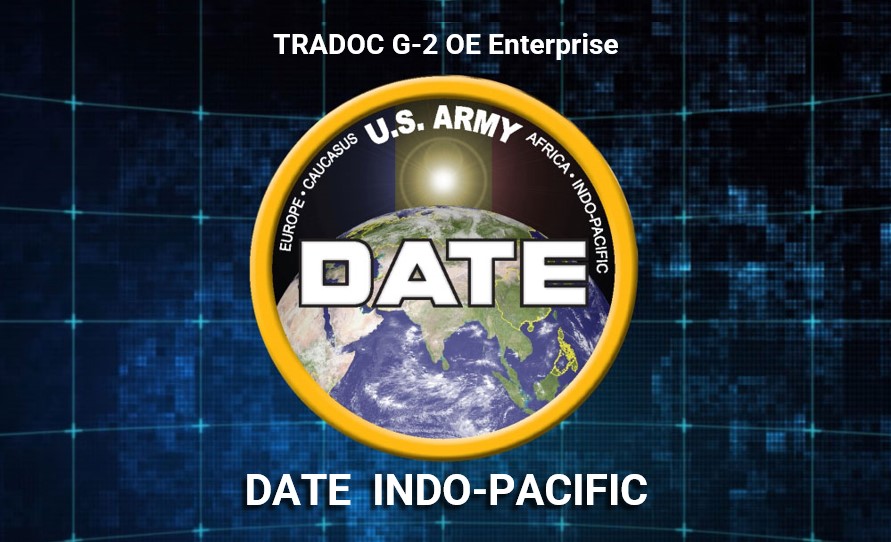
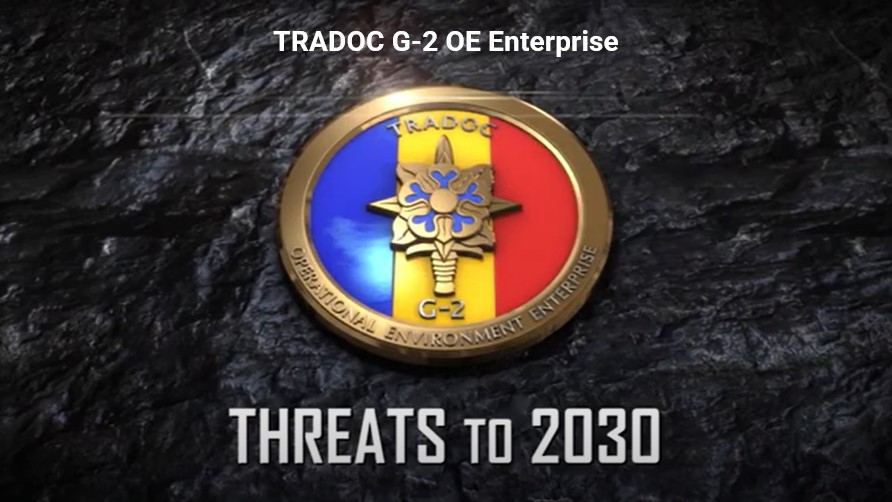
PARTNER & ENGAGE
Partner through DATE with the U.S. Army training and education community, Operational Forces, Joint Forces, and our International Allies. Engage directly with the TRADOC G2 Training Community of Practice through our Microsoft Team.
All DATE material on ODIN is publicly releasable and can be used directly without requiring additional Foreign Disclosure Officer (FDO) review. However, if derivative products, such as scenario materials, are created based on ODIN content, it is recommended that they be reviewed by your command's security representatives or Public Affairs/Foreign Disclosure Point of Contact (POC) to ensure compliance with established security practices and to determine the appropriate level of release, whether for public release or foreign disclosure.


